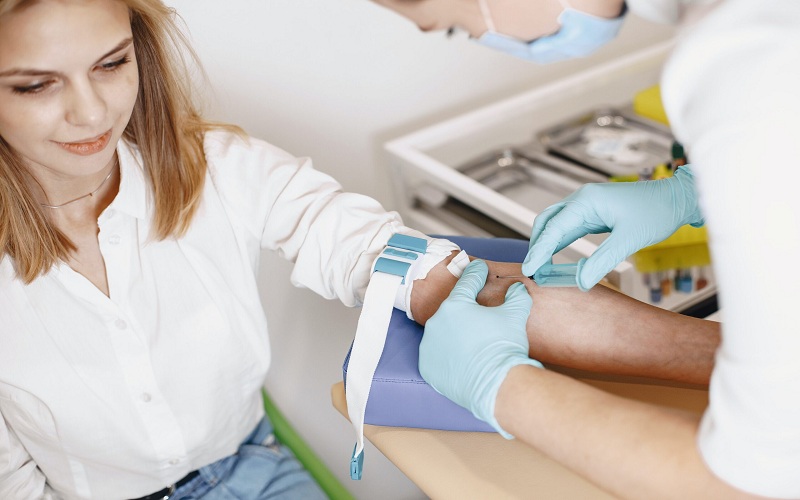In healthcare settings, cleanliness isn’t just about appearances—it’s a matter of life and death. In order to keep patients, employees, and visitors in a safe and healthy environment, professional cleaning services are crucial. This essay examines the value of skilled cleaning and how it supports efficient infection control in hospital settings.
The Link Between Cleanliness and Patient Safety
The health of patients is seriously threatened by infections linked to healthcare settings (HAIs). These infections, acquired during medical care, can lead to:
- Prolonged hospital stays
- Increased healthcare costs
- Higher mortality rates D. Antibiotic resistance
Professional cleaning services are at the forefront of preventing HAIs by maintaining a hygienic environment. To get rid of infections and lower the chance of their spreading, they employ certain methods and supplies.
Key Areas of Focus in Healthcare Cleaning
Professional cleaners in healthcare settings pay special attention to high-touch surfaces and critical areas:
- Patient rooms and bathrooms
- Operating theaters
- Intensive care units
- Emergency departments
- Waiting areas
- Nurse stations
- Medical equipment
These areas require frequent and thorough cleaning to minimize the spread of harmful microorganisms.
Specialized Cleaning Techniques for Healthcare Facilities
Healthcare cleaning demands more than just standard janitorial services. Professional cleaners use advanced methods to ensure a truly sanitized environment:
- UV-C light disinfection
- Electrostatic spraying
- HEPA filtration
- Steam cleaning
- Microfiber technology
These techniques, when applied correctly, can significantly reduce the presence of harmful pathogens in healthcare settings.
The Importance of Proper Training
Professional cleaning staff working in healthcare environments undergo specialized training to:
- Understand infection control principles
- Use personal protective equipment (PPE) correctly
- Apply appropriate cleaning and disinfection techniques
- Follow proper waste management protocols
- Adhere to safety regulations
This training ensures that cleaning staff can effectively contribute to the overall infection control strategy of healthcare facilities.
Cleaning Products in Healthcare Settings
Healthcare settings require careful consideration while selecting cleaning supplies. Professional cleaners use:
- Hospital-grade disinfectants
- EPA-registered germicides
- Non-toxic, environmentally friendly solutions
- Products effective against a broad spectrum of pathogens
These products are selected based on their efficacy, safety, and compatibility with healthcare surfaces and equipment.
The Role of Technology in Healthcare Cleaning
Advancements in technology have revolutionized cleaning practices in healthcare settings:
- Automated floor scrubbers
- Robotic disinfection systems
- IoT-enabled cleaning monitoring D. Data analytics for cleaning performance
These innovations enhance efficiency, consistency, and effectiveness of cleaning processes.
Collaboration Between Cleaning Staff and Healthcare Professionals
Effective infection control requires a team effort. Professional cleaning services work closely with:
- Infection control specialists
- Nursing staff
- Facility managers
- Environmental services teams
This collaboration ensures that cleaning protocols align with the specific needs and requirements of each healthcare facility.
The Impact of COVID-19 on Healthcare Cleaning
The global pandemic has heightened awareness of the importance of cleanliness in healthcare settings. Professional cleaning services have adapted by:
- Increasing cleaning frequency
- Enhancing focus on high-touch surfaces
- Implementing new disinfection technologies
- Providing additional training on respiratory pathogens
- Adjusting cleaning schedules to accommodate patient flow
These changes have further underscored the value of professional cleaning in maintaining a safe healthcare environment.
Measuring Cleaning Effectiveness
Professional cleaning services use various methods to assess the quality of their work:
- ATP (Adenosine Triphosphate) testing
- Fluorescent marking
- Visual inspections
- Environmental culturing
- Patient satisfaction surveys
These measures help ensure that cleaning standards are consistently met and areas for improvement are identified.
The Cost-Benefit Analysis of Professional Cleaning
While professional cleaning services may seem costly, they offer significant benefits:
- Reduced HAI rates
- Improved patient outcomes
- Enhanced facility reputation
- Lower long-term healthcare costs
- Increased staff productivity
When considering the potential costs of infections and their consequences, investing in high-quality cleaning services becomes a wise financial decision.
Selecting the Right Cleaning Service
Healthcare facilities should consider several factors when choosing a professional cleaning service:
- Experience in healthcare settings
- Knowledge of infection control principles
- Use of appropriate cleaning technologies and products
- Compliance with regulatory standards
- Flexibility to adapt to facility needs
- Commitment to ongoing staff training
For instance, Columbia MO commercial cleaning services might offer specialized healthcare cleaning teams trained in the latest infection control practices.
The Future of Healthcare Cleaning
As healthcare continues to evolve, so too will cleaning practices. Emerging trends include:
- Integration of artificial intelligence in cleaning processes
- Development of self-disinfecting surfaces
- Increased use of sustainable cleaning solutions
- Implementation of real-time cleanliness monitoring systems
These advancements will further enhance the role of professional cleaning in infection control.
Professional cleaning services play an indispensable role in healthcare settings. By maintaining a clean and sanitized environment, they contribute significantly to patient safety, staff well-being, and overall healthcare quality. As the healthcare landscape continues to change, the importance of expert cleaning in infection control will only grow, underscoring the need for ongoing investment in this critical area.

